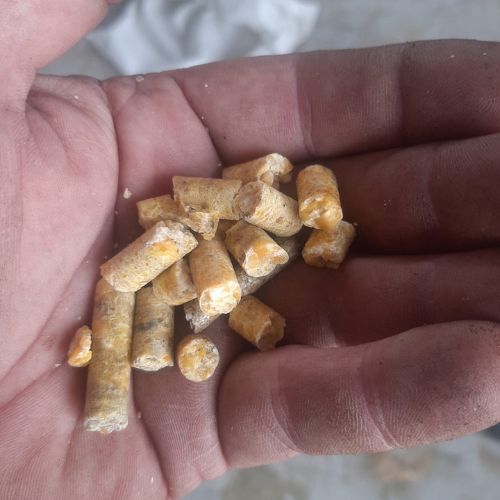
A new pelleting plant aims to help drive sustainable conservation in the Agulhas Plains district. In this pilot initiative, local resources are being turned into feed pellets for animals, while funding critical restoration work in the Nuwejaars Wetlands Special Management Area (NWSMA).
The pelleting plant forms part of an interconnected system that makes use of natural by-products to sustain both conservation and community livelihoods.
Key to the process is biochar, produced through a biochar reactor using wood from invasive alien plants cut out of wetlands and fynbos habitats. Once processed, the biochar is mixed with other ingredients to create nutritious pellets for livestock and game.
Restoring the wetlands
“Biochar has exceptional benefits for gut health in animals,” says Ross Kettles, Operations Manager of the Nuwejaars River Nature Reserve. “But more than that, this approach allows us to create opportunities from invasive biomass, while restoring wetlands and fynbos that are under severe threat. By selling these pellets, we can directly reinvest in nature restoration and help secure the ecological integrity of the Nuwejaars wetlands.”
The Nuwejaars Wetlands Special Management Area spans nearly 47,000 hectares at the foot of Africa, providing habitat for threatened species such as hippo, African Marsh Harrier, freshwater fish species on the brink of extinction and the Critically Endangered Micro Frog. It’s managed by a non-profit company, the Nuwejaars River Nature Reserve. Here title deed restrictions have been signed over private land, to protect these land and waterscapes in perpetuity.
Wetlands play a vital role in storing carbon, filtering water and supporting livelihoods in the Agulhas Plain. Yet they are among the most degraded ecosystems in South Africa, often due to invasive alien plants that choke waterways, reduce biodiversity and heighten fire risk.
Tackling twin challenges
By transforming invasive alien biomass into a valuable product, the new pelleting plant addresses two urgent challenges:
- Restoring wetlands and fynbos ecosystems by removing invasive alien vegetation.
- Creating a revenue stream for conservation by selling high-quality animal feed pellets enriched with biochar.
The pelleting plant and biochar reactor were made possible through generous donor support from the IKI Small Grants Programme, part of the International Climate Initiative (IKI). The IKI Small Grants Programme is funded by the Federal Ministry of Economic Affairs and Climate Action (BMWK) and the Federal Foreign Office (AA), and implemented by the Deutsche Gesellschaft für Internationale Zusammenarbeit (GIZ) GmbH).
“This investment is more than just equipment – it’s a model for how conservation could sustain itself in the long term,” says Kettles. “Donor funding has enabled us to set up the system, which has set the scene for generating our own income through the sale of pellets. That income will go straight back into our restoration teams, who are out in the wetlands every day removing alien plants and reviving degraded land.”

A new chapter for conservation
The pelleting plant signals a new chapter for the Nuwejaars River Nature Reserve: one that combines ecological restoration and innovative green solutions to tackle the twin crises of biodiversity loss and climate change.
Kettles says, “We want to show that restoration is not only essential for nature – it can also be smart, circular and financially viable. As we sell these pellets, it’s an investment straight back into nature. And we couldn’t have done this without the incredible support of the IKI Small Grants Programme.”
The plant has been made possible through generous donor support from the IKI Small Grants Programme, part of the International Climate Initiative (IKI). The IKI Small Grants Programme is funded by the Federal Ministry of Economic Affairs and Climate Action (BMWK) and the Federal Foreign Office (AA), and implemented by the Deutsche Gesellschaft für Internationale Zusammenarbeit (GIZ) GmbH).



